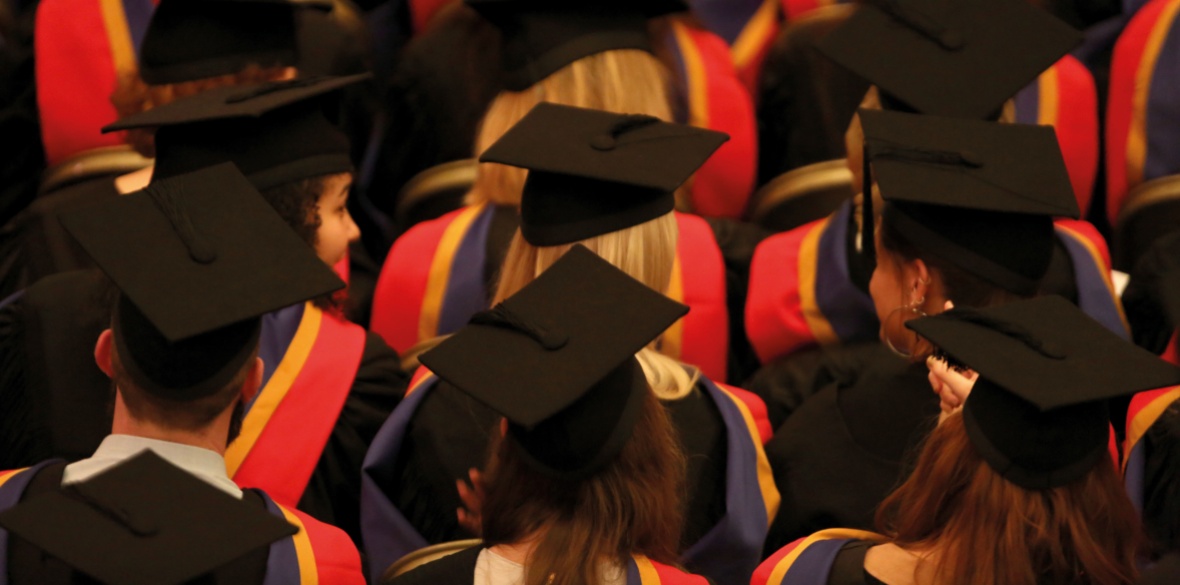This is the last article you can read this month
You can read more article this month
You can read more articles this month
Sorry your limit is up for this month
Reset on:
Please help support the Morning Star by subscribing here
I’LL SOON graduate from a Scottish university, and, having come from a background where neither parent attended university, I know I am incredibly lucky — but what I don’t feel lucky for is the student experience. In typical student fashion I’d like to take this opportunity to moan about it.
While the course fees for Scottish universities are free, living costs are not; when we graduate with clouds of debt hanging over us, can we really call this “free education”?
Even then the loans do not come close to covering living costs. When I started university the minimum Student Awards Agency Scotland (SAAS) payment was roughly £475 a month and by now it has risen to £600. This year it will rise to £800 a month. So over five years it has almost doubled, but considering rents have risen further beyond affordable levels (a third of income would be reasonable, but most spend far more), can we seriously call this an improvement? It’s not nearly enough.
Universities tell us that we are supposed to be in full-time education, but like so many other working-class students, I have taken up part-time, precarious work in order to make ends meet during term time. Students from more affluent backgrounds do not have to do this, which creates gross inequalities in a students’ ability to learn.
Additionally, universities have taken insufficient Scottish government funding as an opportunity to act as businesses, extracting as much profit as possible from students rather than fulfilling their primary role as education providers.
Universities advertise heavily to international students who pay exorbitantly and are treated as a quick way to make money. With the Scottish government planning real-terms cuts of over £100 million for universities and colleges in the coming year, this is only set to get worse.
My own university, Stirling, has ignored the plight of Muhammed Rauf Warris, an international student from Pakistan who was detained for 70 days in Dungavel House Immigration Centre, the ordeal leaving him with post-traumatic stress disorder. Despite the large outpouring of support from students and the UCU, the university itself has remained largely silent. If Stirling Uni can afford to give its vice-chancellor a £68,500 pay rise from 2022-23, they have more than enough money to give Muhammed a tuition fee amnesty and access to funding to secure his place in Britain on a student visa.
Vulnerable students aren’t only being mistreated by universities. Due to more and more students being accepted without the necessary accommodation to house them, large companies such as Unite Students are swooping in to fill the gap, with hiked-up rents.
Students’ issues with loneliness and poor mental health are compounded by both university-owned and privately owned purpose-built student accommodation (PBSA), as the accommodation is often unlivable. While living in a university-owned PBSA we argued heavily with accommodation services for them to fix our non-flushing toilet and flaking popcorn ceilings. Mould was commonplace. Even in the often newer private student halls it is reported that cases of mental health issues are up 33 per cent.
As PBSAs have a reputation for poor practices and unaffordability, many students enter the private market where they are vulnerable to rogue landlords as they often do not know their rights.
Rents are still too high for the majority of students, and there simply isn’t enough housing available. This year two friends of mine were forced to sleep on sofas and commute from Bath and Donaghadee. I think they’d agree that the stress of being effectively homeless was incredibly detrimental to not only their studies but also their mental health. This isn’t as unusual as you would think and they are not the only students who I personally know have faced homelessness. Around 12 per cent of Scottish students become homeless during their studies, which is far higher than the general population.
In the past few years we have witnessed students being blamed for the pandemic and treated as cash cows by universities who lied to us about in-person teaching to extract money from rent. In the lead-up to September 2020, we were told teaching would be in person, so students flocked back to campus. It was only when students were locked into expensive accommodation contracts that the universities told us everything would be online. At the same time, Nicola Sturgeon decided only students would be banned from pubs, clubs and restaurants to stop the spread of Covid.
Despite all this, we don’t hear much from NUS Scotland. Yes, its lobbying of the Scottish government did achieve that aforementioned SAAS increase, but in my years as a student I have watched NUS gradually become less democratic and less outspoken.
Reflecting on my time at university I can only conclude that students need a real union that will fight for them and stand in solidarity with striking UCU staff, not this husk of an NGO we have now. It is only through this that we will see the Scottish government give higher education the funding it needs to survive as education providers not as businesses.









